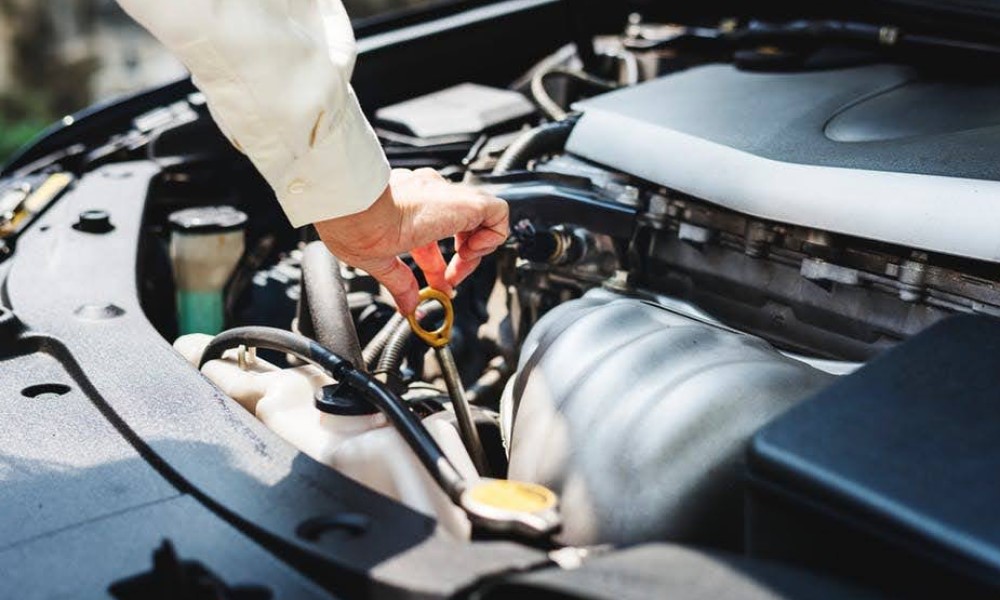When your vehicle experiences acceleration problems, it can be frustrating and potentially dangerous. Understanding the root cause of these issues is crucial to ensuring your car’s performance and safety on the road. In this guide, we will explore common causes of acceleration problems and provide practical tips for diagnosing and fixing them. Whether you are experiencing slow acceleration, engine hesitation, or sudden power loss, the information presented here will help you get your vehicle back to optimal functioning.
Follow Double Apex on Instagram and Facebook where we share more car content.
Check the Fuel System
One common cause of acceleration problems is a malfunctioning fuel system. This system includes the fuel pump, fuel filter, and injectors. If any part of this system is dirty or faulty, it can restrict the flow of gasoline to the engine, leading to sluggish performance. Regularly replacing the fuel filter and ensuring injectors are clean can help mitigate these issues. Besides regular maintenance, it’s crucial to use high-quality gasoline to prevent sediment buildup in the fuel system. Additionally, be aware of any unusual noises coming from the fuel pump, as this could indicate impending failure.
Addressing these problems early on can prevent more severe issues down the road. If the car jerks when accelerating, for example, it could be due to a clogged fuel filter. In this case, replacing the filter should solve the problem. On the other hand, if the vehicle struggles to accelerate despite a clean fuel system, it could be a sign of a faulty fuel pump. In such cases, seeking professional help is recommended.
Inspect the Air Intake System
The air intake system supplies your engine with the oxygen it needs to combust fuel efficiently. A clogged air filter or a malfunctioning mass air flow sensor can severely impact your vehicle’s acceleration. Ensure that your air filter is replaced as recommended by your vehicle manufacturer to maintain optimal airflow.
Modern vehicles are equipped with sensors that monitor air intake. If a sensor is faulty, it can send incorrect information to the engine control unit, causing poor acceleration or engine hesitation. Regular diagnostics can help identify sensor issues before they escalate into more significant problems.
Evaluate the Ignition System
The ignition system is another critical component to evaluate when facing acceleration problems. This system is responsible for igniting the air-fuel mixture in the engine’s combustion chamber. Worn-out spark plugs, faulty ignition coils, or a malfunctioning distributor can lead to weak or inconsistent sparks, resulting in poor acceleration and engine performance. Regularly inspecting and replacing spark plugs and ignition components, as advised by your vehicle’s maintenance schedule, can prevent these issues. Additionally, be on the lookout for any signs of corrosion or wear on ignition wires, as they may cause intermittent connections and further contribute to acceleration problems.
If you’ve checked and maintained the fuel, air, and ignition systems but still experience acceleration issues, the problem might lie within the exhaust system. A clogged catalytic converter or exhaust pipes can create back pressure, restricting the engine’s ability to expel exhaust gases efficiently. This can lead to reduced power and acceleration. Performing a backpressure test can help diagnose issues within the exhaust system. If a clogged catalytic converter is found, it may need to be replaced to restore proper engine performance. Regular maintenance and inspections of your vehicle’s exhaust system can help prevent these problems and ensure your car runs smoothly.
Monitor the Exhaust System
A faulty exhaust system can also be a culprit behind acceleration problems. A clogged catalytic converter or a damaged muffler can restrict engine performance and reduce power. Additionally, issues with the oxygen sensors can lead to incorrect fuel-air mixtures, impacting acceleration adversely. It’s essential to listen for any unusual sounds or rattling coming from the exhaust, as these can be early warning signs of a problem. Regular inspections and addressing issues promptly can help maintain the efficiency of your exhaust system and, consequently, your vehicle’s acceleration.
Check for Transmission Issues
The transmission plays a vital role in transferring power from the engine to the wheels. Problems such as slipping gears or low transmission fluid can significantly impact acceleration. Ensure that the transmission fluid is at the correct level and is changed according to the maintenance schedule. Transmission issues can be complicated and may require professional diagnosis and repairs. However, paying attention to warning signs such as delayed gear shifts or strange noises can help you catch and address problems early, ensuring smooth and responsive acceleration.
Understanding and addressing acceleration problems in your vehicle is crucial for both safety and performance. By regularly maintaining key systems such as the fuel system, air intake system, ignition system, exhaust system, and transmission, you can prevent many common issues that lead to poor acceleration.
Always be attentive to warning signs and unusual noises, as they can be early indicators of underlying problems. While some issues can be managed with routine checks and replacements, others may require professional assistance. Ensuring proper maintenance and timely repairs will help keep your vehicle running smoothly and efficiently, providing a safer and more enjoyable driving experience.






Leave A Comment